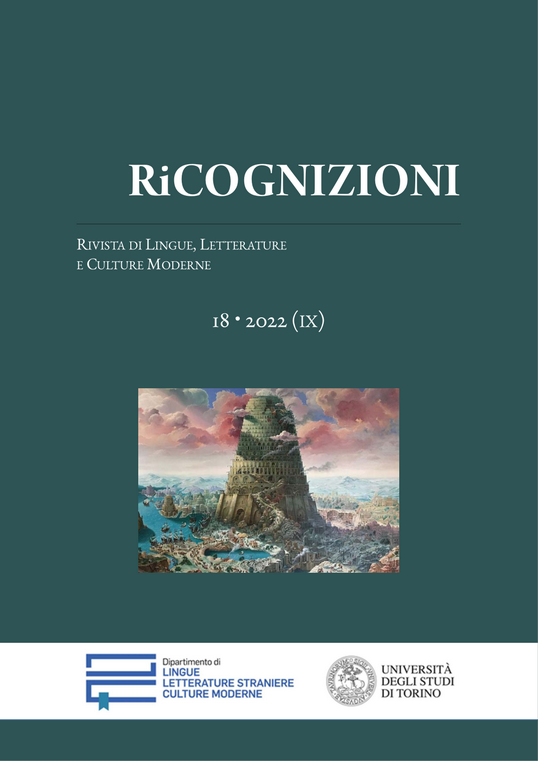Can We Construct a Language without Metaphors?
DOI:
https://doi.org/10.13135/2384-8987/7097Parole chiave:
Metaphor, Simile, Science Fiction, David Brin, The Uplift War, China Miéville, EmbassytownAbstract
Metaphors are ubiquitous in natural language; in fact, no language without metaphors is known. But can we construct a language without metaphors? An issue that is particularly relevant to this question is the relation between metaphor and simile. Some argue that metaphors are a type of (elided) simile, whereas others claim that the two phenomena differ in kind. Ideally, a way to settle the dispute would be to find a language that contains similes but not metaphors. There is no such actual language. But two science fiction authors have attempted to conceive of and describe just such a language. David Brin, in The Uplift War, creates birdlike aliens, whose language is claimed to have similes but not metaphors. However, Brin reproduces utterances of these aliens, in which he reflects their avian nature; and he often does so by metaphor. China Miéville, in Embassytown, also creates aliens whose language is claimed to have similes but not metaphors. However, these similes are frozen, and are actually idioms: they have a fixed, conventional meaning. Later on, the aliens acquire metaphors, and only then do they begin to have, in addition, novel similes. Hence, both Brin and Miéville fail: the former constructs a language that has both similes and metaphors, whereas the other constructs a language that initially has neither, and later acquires both simultaneously. Science fiction authors are, after all, humans, and are bound by the constraints of human languages. Hence, their failure to construct a language that contains similes but not metaphors tells us that the two phenomena are fundamentally very close. To the extent that it is possible to construct a language without metaphors, it appears that it would have to do without similes too.
##submission.downloads##
Pubblicato
Come citare
Fascicolo
Sezione
Licenza
Gli autori che pubblicano su questa rivista accettano le seguenti condizioni:- Gli autori mantengono i diritti sulla loro opera e cedono alla rivista il diritto di prima pubblicazione dell'opera, contemporaneamente licenziata sotto una Licenza Creative Commons - Attribuzione che permette ad altri di condividere l'opera indicando la paternità intellettuale e la prima pubblicazione su questa rivista.
- Gli autori possono aderire ad altri accordi di licenza non esclusiva per la distribuzione della versione dell'opera pubblicata (es. depositarla in un archivio istituzionale o pubblicarla in una monografia), a patto di indicare che la prima pubblicazione è avvenuta su questa rivista.
- Gli autori possono diffondere la loro opera online (es. in repository istituzionali o nel loro sito web) prima e durante il processo di submission, poiché può portare a scambi produttivi e aumentare le citazioni dell'opera pubblicata (Vedi The Effect of Open Access).








